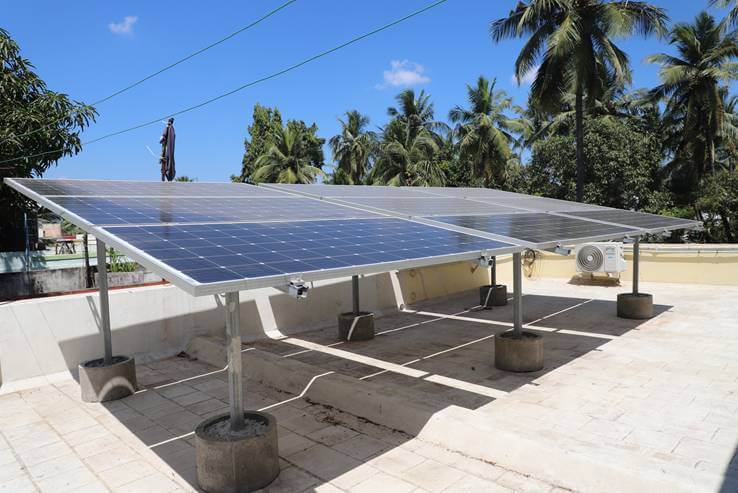The demand for solar panels has been increasing, as people become more aware of the benefits of renewable energy. According to a report by the International Energy Agency, solar PV installations hit a record high of 138 GW in 2020, which is a 23% increase from the previous year. In response to this, many countries are investing heavily in solar energy to meet their power needs.

There are a variety of solar panels available in the market, with different sizes, designs, and capacities. The two most common types of solar panels are monocrystalline and polycrystalline. Monocrystalline panels have higher efficiency rates and are more expensive, while polycrystalline panels are cheaper and have a lower efficiency rate.
One of the benefits of solar panels is their ease of installation. They can be installed on rooftops, on the ground or on top of solar tracking systems. Once installed, they require little maintenance, making them a cost-effective and reliable source of renewable energy.
Solar panels are also environmentally friendly, as they do not emit harmful pollutants or greenhouse gases that contribute to climate change. They help to reduce our carbon footprint and contribute to a more sustainable future. Additionally, solar panels can provide energy independence, reducing the reliance on non-renewable sources like fossil fuels.
The solar panel industry is rapidly evolving, with new technologies and innovations being introduced regularly. One such development is the use of thin-film solar panels which are lightweight, flexible and can be integrated into a variety of surfaces. This development may lead to a significant reduction in the cost of solar installations and provide greater design flexibility.
Lastly, it's important to note that solar panels offer significant cost savings over time. While the initial installation cost may be high, the long-term savings on energy bills can offset this cost over the panel's lifespan of 25-30 years. In addition, many governments offer incentives and subsidies to encourage the adoption of solar energy, which can further reduce the installation cost.
In conclusion, solar panels are a reliable, environmentally-friendly and cost-effective source of renewable energy. They offer significant benefits to both consumers and the planet, making them an excellent investment. The growing demand for solar panels is a testament to their effectiveness in reducing our reliance on non-renewable energy sources. As the solar industry continues to evolve, we can expect to see more innovations that will make solar energy even more accessible and affordable for everyone.